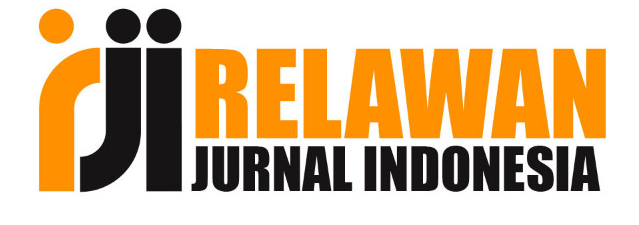THE IMPLEMENTATION OF THEME-BASED TEACHING WITH SHORT STORY TO IMPROVE STUDENTS’ READING COMPREHENSION THE TENTH GRADE STUDENTS OF SMA MUHAMMADIYAH 1 PALEMBANG
DOI:
https://doi.org/10.36982/jge.v6i1.430Abstract
This study was aimed to observe the use of Theme-Based Teaching with short story, and to find out the obstacles, advantages and disadvantages of theme based teaching using short story and narrative text. This study was conducted by using a quasi-experimental design with pretest and posttest. The population of this study consisted of 259 tenth grade students of SMA Muhammadiyah 1 Palembang in Academic Year of 2016/2017. There were 40 students taken as sample. Each group consisted of 20 students as experimental group and 20 students from class as control group. The sample of this study was taken by using purposive sampling method.  In this study, the researcher used pretest-posttest non-equivalent group design. The instrument used in collecting the data was oral test in the form of presentation. The test was administrated twice as the pretest and posttest for both experimental and control group. The results of the test were analyzed by using IBM SPSS (Statistical Package for the Social Science) Statistics 21. The result showed that “there was means significant difference from students posttest score in experimental and control group, it was found the p-ouput (Sig.2-tailed) was lower than 0.05 level and t-obtained (9.823) is higher than t-table (2.024). So, the Ho (the null hypothesis) was rejected and Ha (the alternative hypothesis) was accepted. It means that there was significant difference on students’ reading comprehension achievement taught using Theme-Based Teaching than students who were taught by using teacher’s strategy. The findings of this study suggested that Theme based teaching was effective in improving students’ reading comprehension on narrative text as indicated by a statistically higher reading score of experimental group students.
Key word : theme-based teaching, reading achievement
References
Coplan, A. (2004). Empathic engagement with narrative fictions. The Journal of Aesthetics and Art Criticism, 2(62), 141-152.
Domby, Henrieta ( 2009 ) Simple View of reading, ITE English: Readings for Discussion.
Fauziah, S. (2013). Kemampuan membaca pemahaman literal dan interpretatif melalui pendekatan konstruktivisme. Kemampuan Membaca Pemahaman, 6(2). 272-286.
Fisher, A. S. H. (2016). Students’ reading techniques difficulties in recount text. Journal of English and Education 2016, 4(2), 1-12.
Fraenkel, R. J. & Wallen, E. N. (2003). How to design and evaluate research in education. New York: Mc Graw Hill.
Gao, F. (2011). Theme-based group teaching of college oral English: Endorsed by students in chinese EFL context. English Language Teaching, 1(4), 33-41.
Gilakjani, A. P., Sabouri, N. B. (2016). A study of factors affecting EFL learners’ reading comprehension skill and the strategies for improvement. International Journal of English Linguistics, 5(6), 180- 187.
Kazerooni, E. A. (2001). Population and Sample. Fundamentals of clinical research for radiologists, 5(177), 993-1000.
Masduqi, H. (2014). EFL reading in indonesian universities: Perspectives and challenges in cultural contexts, Journal of Teaching and Education, 03(03), 385-397.
McKay, S. L. (2004). Teaching English as an international language: The role of culture in asian contexts. The Journal of Asia Tefl, 1(1), 1-22.
Pardede, P. (2011). Using short stories to teach language skills. A triannual publication on the study of English Language Teaching, 1(1), 14-27.
PISA. (2016) The Jakarta post. Retrieved from http://www.thejakartapost.com/academia/2016/12/18/indonesia s-pisa-results-show-need-to-use-education-resources-more-efficiently.html.
Reynier, C. (2003). The short story according to Woolf. Journal of the Short Story in English, 41, 1-11.
Rini, J. E. (2014). Its position among other languages in indonesia. Presented at the International Conference of Center for Chinese-Indonesian Studies (CCIS) "Chinese Indonesians: Their Lives and Identities" at Candi Hotel, Semarang, Indonesia on 14-16 November 2013, 2(2), 19-40.
Saka, O. (2014). Short story in English language teaching. International Online Journal of Education and Teaching (IOEJET), 1(4), 278-288.
Saebani, B. A. (2008). Metode Penelitian. Bandung: Pustaka Setia.
Palys, T. (2008). Purposive sampling. In L.M. Given (Ed.) The Sage Encyclopedia of Qualitative Research Methods.(Vol.2). Sage: Los Angeles, pp. 697-8.
Tsai, Y. L., Shang, H. F. (2010). The impact of content-based language instruction on EFL students’ reading performance. Asian Social Science, 3(6), 77-85.
Yugandhar, Dr. K. (2016) . Content-theme-based instruction to increase the quality of EFL class. International Journal on Studies in English Language and Literature (IJSELL), 8(4), 86-90.
Downloads
Published
How to Cite
Issue
Section
License
Global Expert: Jurnal Bahasa dan Sastra is published by Universitas Indo Global Mandiri and licensed under a Creative Commons Attribution-ShareAlike 4.0 International License.










